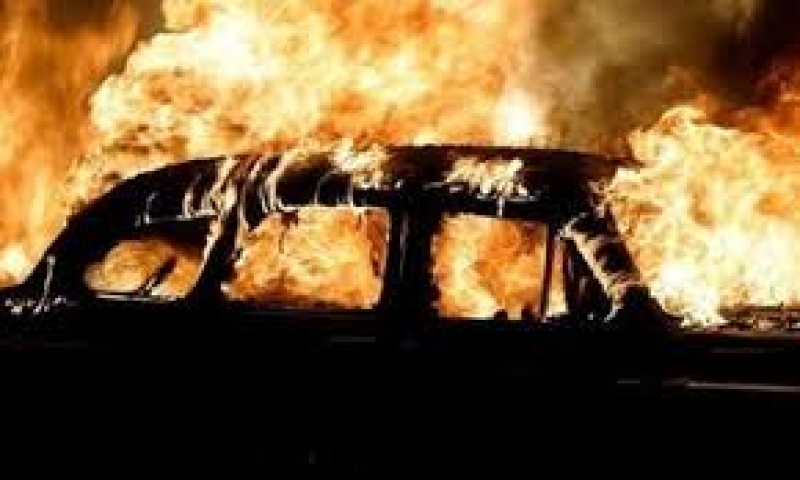- India Sees 9% Drop in Foreign Tourists as Bangladesh Visits Plunge |
- Dhaka Urges Restraint in Pakistan-Afghan War |
- Guterres Urges Action on Safe Migration Pact |
- OpenAI Raises $110B in Amazon-Led Funding |
- Puppet show enchants Children as Boi Mela comes alive on day 2 |
6 Killed in Massive Russian Drone, Missile Strikes in Ukraine

Russia unleashed a massive overnight aerial assault on Ukraine, firing more than 620 drones and long-range missiles in one of the largest barrages in recent months. At least six people were killed and dozens injured, Ukrainian officials said Saturday, prompting fresh calls for tougher sanctions on Moscow.
Ukrainian President Volodymyr Zelensky reported that 26 cruise missiles and 597 attack drones—many of them Iranian-made Shaheds—were launched in the wave of attacks. The Ukrainian air force said it intercepted 319 Shahed drones and 25 missiles, but around 20 drones and one missile struck five different regions.
"This level of aggression must be met with action, not just statements," Zelensky said, urging Western allies to impose immediate sanctions targeting Russian drone manufacturers and energy exports.
Civilian Casualties Across the Country
In Chernivtsi, a region far from the front lines, two people were killed and 20 others injured. Another 12 were wounded in Lviv, also in western Ukraine. In the east, two people died in Dnipropetrovsk, and three more were wounded in Kharkiv, local officials confirmed.
In the northeastern Sumy region, Russian forces reportedly dropped two guided aerial bombs on residential areas, killing a 65-year-old man and his wife, according to the local prosecutor’s office. Fourteen residential buildings were destroyed or damaged in the attack.
Meanwhile, Russia’s defense ministry said its strikes targeted Ukrainian military-industrial facilities in Lviv, Kharkiv, and Lutsk, as well as a military airfield.
Tensions Escalate Amid Stalled Peace Efforts
The latest assault comes as U.S.-led ceasefire talks show little progress. Special envoy Keith Kellogg is set to arrive in Ukraine on Monday for another round of diplomatic efforts, while former U.S. President Donald Trump promised a “major statement on Russia” the same day.
Last week, Trump held a call with Russian President Vladimir Putin, but acknowledged no breakthrough had been made. The Kremlin reiterated its refusal to accept any European peacekeeping force in Ukraine, despite French President Emmanuel Macron saying allies had a plan “ready to go” following a ceasefire.
Putin has insisted that Russia will not abandon its war objectives, including forcing Ukraine to renounce NATO ambitions.
Russia Strikes Border Region, Cites NATO Threat
Inside Russia, a drone reportedly struck the Belgorod Arena sports center during a children’s class, though no casualties were reported. A separate attack in the nearby town of Shebekino killed one man when his home was hit.
Zelensky Urges Swift Sanctions as Arms Flow Slows
Zelensky renewed pressure on Western nations to respond decisively, especially as the U.S. announced earlier this month it would pause some weapons deliveries to Ukraine—a move seen as a blow to Kyiv’s defense capabilities.
“The pace of Russian air strikes requires swift decisions. Sanctions can slow them down—now,” Zelensky posted on social media.
He called for targeted penalties against companies helping Russia produce drones and for tighter controls on oil exports, which remain a critical lifeline for Moscow despite existing sanctions.
Food Crisis Concerns Resurface
Meanwhile, a 2022 UN-brokered deal allowing Russian grain and fertilizer exports is set to expire on July 22. The UN confirmed Friday it will not be renewed, raising concerns over global food security and price spikes, especially in vulnerable regions.
Moscow has long argued that the deal fails to shield it from the broader effects of Western sanctions, despite its exemption from direct restrictions on food and fertilizer.

